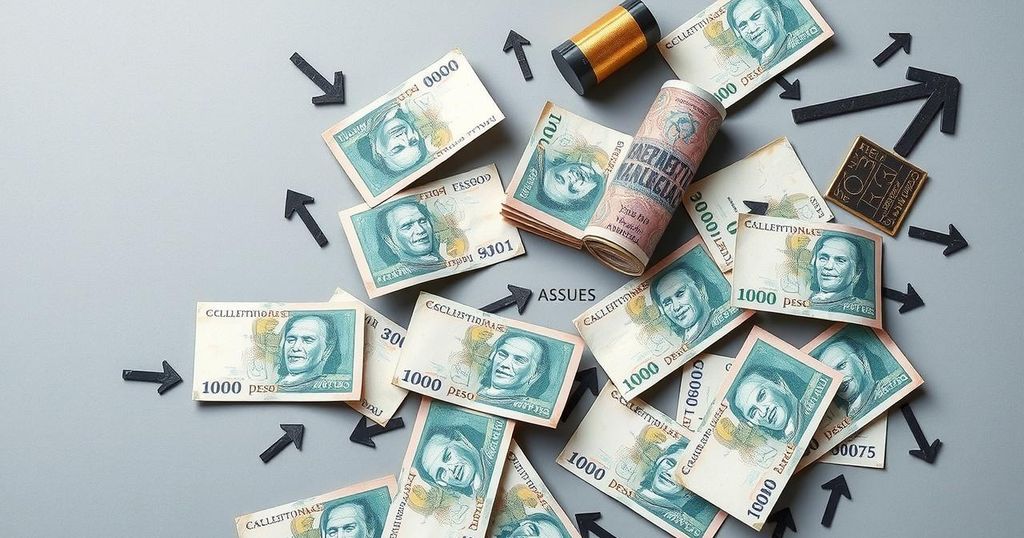Argentina Pursues $20 Billion IMF Loan Amid Economic Turmoil
Argentina has sought a $20 billion loan from the IMF due to economic struggles, including a depreciating peso and dwindling foreign reserves. The government is also negotiating with other organizations like the World Bank for additional support. Despite a history of defaults and high inflation, officials express hope for stabilization amid public unrest and protests against economic policies.
Argentina is actively pursuing a $20 billion loan from the International Monetary Fund (IMF) as stated by the country’s economy minister, Luis Caputo. This request comes amid the government’s efforts to maintain foreign reserves while addressing issues with its struggling currency, the peso. Recently, the peso has experienced significant pressure, leading to a depletion of reserves by over $1.2 billion in just one week due to concerns over potential devaluation.
In addition to the IMF loan, Caputo also indicated that negotiations are underway with other financial institutions, including the World Bank and the Inter-American Development Bank (IDB), for supplementary support. With Argentina being the IMF’s largest debtor, the approval of this proposed loan is crucial. Julie Kozack, an IMF spokeswoman, remarked that talks regarding a substantial financing package are significantly advanced, although specific figures have not been disclosed.
Caputo clarified that the funds from the IMF will not be allocated for operational expenses but rather to support the recapitalization of the Argentine central bank. Argentina’s history of default has necessitated IMF assistance on 22 occasions, marking a critical point in the country’s financial undertakings. President Javier Milei, an advocate for stringent fiscal measures, came into power in December with promises to reduce spending and curb inflation amidst a continuous decline in the peso’s value against the US dollar.
The anticipated loan will add to Argentina’s existing debt of $44 billion owed to the IMF under a previously established agreement from 2018. While the inflation rate remains one of the highest globally, adjustments made under President Milei’s administration have seen a decrease in the rate from 211 percent at the close of 2023 to 84.5 percent in January. The president maintains that securing a new deal with the IMF is vital for stabilizing inflation and thus improving the economic outlook.
Milei’s administration faces challenges, including opposition-led destabilization attempts and public unrest, with various groups, including pensioners and unions, actively protesting against economic conditions. Amid these issues, the CGT labor union has announced a general strike scheduled for April 10. In the financial landscape, Argentina continues to grapple with multiple exchange rates for the dollar, and the disparity between the official and black market rates for the peso has widened significantly over the past six months, further complicating the economic situation.
In summary, Argentina’s recent request for a $20 billion loan from the IMF underscores the gravity of its economic challenges. With a history of defaults, high inflation, and a depreciating currency, the Milei administration is working to stabilize the economy while facing significant opposition and public dissent. The outcome of these negotiations will be critical for the country’s financial health going forward, as Argentina continues to navigate complex economic dynamics.
Original Source: www.victoriaadvocate.com




Post Comment